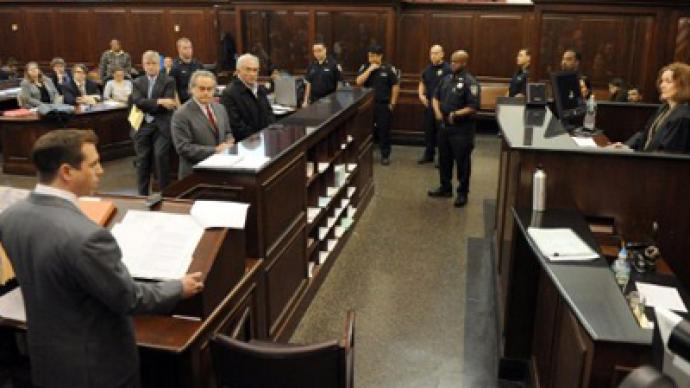Alabama on the brink of exodus

A US District judge in Alabama has made a move that will block legislation in the state’s controversial immigration bill, a step that is earning support from Hispanics and temporarily slowing the mass exodus out of Alabama.
The state’s HB 56 immigration law suffered a blow from Judge Myron Thompson on Wednesday, after he made it illegal for officials to continue to keep illegal immigrants from conducting any business transactions in Alabama. Since the passing of HB 56, state officials have used the wording to force residents to produce citizenship papers in order to be approved for registration permits for manufactured homes. Around 30 percent of Latino Alabamians live in mobile homes, National Immigration Law Center General Counsel Linton Joaquin says in a statement, thus Judge Thompson’s block serves as “a victory that will prevent people from being pushed out of their homes."Had Thompson not have blocked that part of the legislation, immigrants would have also been barred from relocating their mobile homes onto public roads. Marshall County, Ala. Revenue Commissioner Joey Masters tells USA Today that around 20 percent of the permits that have come in recent weeks have been denied because of the legislation in its previous form. Along with other immigrant-attacking initiatives made part of the law, Hispanics in Alabama have been fleeing in droves, a detrimental blow to the state’s economy as the tourism and agriculture industries have suffered an immense setback. Samuel Addy of the University of Alabama writes in a report from October 2011 that under the legislation in its strictest incarnation, the state is looking to lose around $40 million if only 10,000 undocumented workers stop working in the state and go elsewhere; The Alabama Farmers Federation predicts that more like $63 million will be lost because of HB 56. Since the passing, the economy has already suffered immensely, with sales in some parts of the state down by 60 percent, reports USA Today, and businesses becoming shorthanded without immigrant workers, thus unable to provide services and make ends meet. The legislation has also taken a toll on the state’s tourism industry, with international visitors cancelling trips to save the hassle of being forced to provide identification at the drop of a hat. Last week a 46-year-old German executive from Mercedes-Benz was arrested for being unable to prove that he was visiting on business; Mercedes-Benz has operated a factory in Alabama and is one of the largest employers in the state.Perhaps hit hardest is the state’s agriculture industry, however. “The economic hardship to farmers and agribusinesses will reverberate throughout Alabama's economy, as one-fifth of all jobs in our state come from farming,” Commissioner John McMillan wrote in September. “We must pursue every option available to assure our Alabama farmers have the workers they need to get their products to market and to provide Alabamians a reliable supply of fresh fruits and vegetables."“This case really shows the truly terrible ways that HB 56 is playing out in the real world,” Mary Bauer, legal director for the Southern Poverty Law Center, adds to USA Today. “There’s little doubt that this law was intended to drive Latinos out of the state, and that its effects have been to devastate the Latino community in Alabama.”Truth be told, that doubt is really nonexistent.Testifying about the legislation, Decatur Representative Micky Hammon, a Republican legislative sponsor of the bill, said, "My purpose was to make it difficult for illegal immigrants to live and work in Alabama." Last week Hammon publically announced that the legislation has caused the state to see a drop of half a percentage point in terms of unemployment, though economists have challenged him over the matter. The Southern Poverty Law Center is representing two immigrants in Elmore County, Alabama that have recently sued the state over HB 56. Judge Thompson’s restraining order on the law was put in place Wednesday, shortly after a hearing in the trial against the state. Judge Thompson’s temporary order expires December 7.














